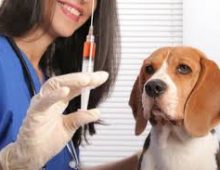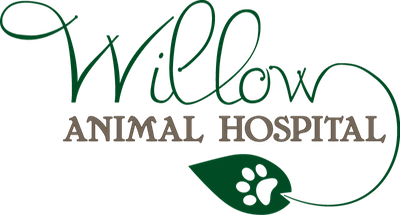Tag Archives: dogs
Vaccination Clinics
Dates have been chosen for the 2020 Willow Animal Hospital Vaccination Clinics!
See our calendar for the upcoming vaccination clinics in January and February. We will be going to Oulu, Port Wing, Maple, Mason, and Mellen, WI.
We offer vaccinations for dogs and cats at a discounted price from our regular in-clinic prices.
Please call us at 715-682-2470 to notify us that you are coming so that we can be better prepared. If we have never vaccinated your pet in the past, please have their records emailed or faxed to our office before the clinic.
We do not perform diagnostics at this clinic. If your pet is suffering from a medical condition please schedule a regular exam in a veterinary facility.
These events are Cash or check only.
Rabies is Incurable?!?
Rabies is a zoonotic disease, meaning it can be transmitted between people and animals. Wildlife like bats, skunks, and raccoons are some of the most common carriers of the disease. Infection occurs when saliva of the infected animal enters the bloodstream of another mammal (this is often from a bite). The disease can take weeks to months to develop symptoms, but once they develop the disease is fatal. Recent confirmed cases of rabies in bats in Ashland and Bayfield Counties have been documented. Please consider the following steps to protect yourself from this deadly disease:
•Keep your pets current on their rabies vaccination. It is only legally required in dogs, but highly recommend in other species (cats, horses, etc.). Not only will this protect your pet from rabies, but in turn it protects you from being exposed to rabies from your own pet.
•Keep your distance from mammalian wildlife, especially any exhibiting abnormal or sickly behavior (ex. a skunk roaming during daylight, a bat acting weak and sick)
•If you are bit by mammalian wildlife contact your local health department. They will direct you on how to submit the animal for rabies testing, if necessary. Only collect the animal if it can be done safely, and try to avoid damaging the head. If you cannot collect the animal, you should still contact your local health department for further instructions.
•If you find a bat in your house contact your local health department. Bat bites can often go unnoticed while you are sleeping. The health department will direct you on how to submit the animal for rabies testing, if necessary. Dr. Sarah Myers, Willow Animal Hospital
(photo courtesy of: www.delavanlakesvet.com)
TICKS: Beyond Lyme Disease & "Ewww!"
If you have lived in northern Wisconsin long enough you probably have run into a tick or two, or hundreds. You may be familiar with the most common risk with ticks as carriers of Lyme disease. Here are some things you may not know about tick diseases:
•The ticks in our area can carry many diseases that can effect both people and pets (Lyme, Anaplasmosis, Ehrlichiosis, and Rocky Mountain Spotted Fever are some of the most common)
•Of the many tick diseases, only Lyme disease has an available vaccine for dogs
•No vaccine (including the Lyme vaccine) is 100% effective at preventing diseases
•A multimodal approach to tick disease prevention is considered the most effective at keeping your pets safe (Lyme vaccine, topical or oral tick prevention products, daily tick checking, avoiding wooded or long grass areas during peak tick season)
•It can sometimes take several months after a tick bite for disease symptoms to develop
•Symptoms of tick diseases can include lethargy, anorexia, lameness, swollen painful joints, high fever
•The classic “bullseye” appearance of a tick bite that is described in people with Lyme disease is not typically seen in dogs
•Many tick disease infections carry a good prognosis if treated promptly and with the entire course of prescribed antibiotics
•Some tick disease infections can cause very serious side effects that may be fatal (ex. Lyme disease in some dogs can lead to a potentially fatal kidney failure)
Call us if you have other questions about tick diseases! Dr. Sarah Myers, Willow Animal Hospital
(photo courtesy of: www.pvguide.org)
Click HERE for 5 ways to protect your pet from Lyme disease.
Click HERE to learn more about protecting yourself & your family from Lyme disease.
Heartworm Disease is SERIOUS
Heartworm disease is a condition where parasitic worms take residence in the heart. That can result in congestive heart failure and death. It is most likely to affect dogs, but very rarely cats can be infected too. The microfilaria stage of the disease is transmitted by mosquitoes. Once inside their host, the microfilaria develop into adult worms that inhabit the heart. The disease is less common in our area (northern Wisconsin) but we still see cases. Dogs that travel to southern Wisconsin or other warmer states are at a much higher risk. The disease is preventable with a relatively inexpensive and safe monthly heartworm prevention pill. If your dog does contract heartworm disease, early detection can allow for treatment, but at considerable expense and with some risks of serious side effects from the treatment. Advanced stages of heartworm disease are often fatal despite any attempts at treatment. Please schedule an appointment if you would like to learn more about testing or prevention for heartworm disease. Dr. Sarah Myers, Willow Animal Hospital
(photo courtesy of: www.whitecloudvet.com)
What is Lepto anyway?
Leptospirosis is a potentially fatal bacterial disease that can cause a very sudden onset of kidney and liver failure in dogs. It is transmitted through urine from infected mammals – often wildlife. Dogs that are at highest risk are those that drink water sources that could be contaminated with wildlife urine. Prevention of this disease is possible with a two shot initial series followed up by an annual vaccine. Leptospirosis is a zoonotic disease, meaning it can be spread from animals to people. Therefore, keeping your pets safe from the disease will help to prevent transmission to your family too. Dr. Sarah Myers, Willow Animal Hospital
(photo courtesy of: www.playbuzz.com)
Independence Day Tips
Happy 4th of July! As you enjoy the festivities remember to keep your pets’ safety in mind. The stressful noises of parades and fireworks can be a major source of stress for your pets. Make sure they are secured in a safe place or on a secure leash during parades and fireworks. The loud noises from the festivities can often scare pets enough that they run away and become lost. If your pets’ stress is severe schedule an appointment with your veterinarian to discuss medication options that may help to calm them. Dr. Sarah Myers, Willow Animal Hospital
(photo courtesy of: www.seesamsit.com)
Kids & Pets
Did you know that pets can transmit some infections to people? These types of transmissible conditions are called zoonotic diseases. With good preventive care risk is extremely low. Intestinal parasites are one of the most common zoonotic diseases we see in pets. We recommend monthly preventive deworming products to prevent your pets from getting intestinal parasites. Preventing your pets from getting these infections is the first line of defense in preventing transmission to your family. Schedule your pet’s annual exam to learn more about which product is best for your pet! Dr. Sarah Myers, Willow Animal Hospital
(photo courtesy of: topicnow.info)
Happy Easter!
Happy Easter! Remember that the tasty chocolate treats we love so much on this holiday can be toxic to your pets. In general, avoid feeding any chocolate to your pet but if they do get into it—how much is too much? Here is a tip to live by: the darker and more bitter the chocolate, the more toxicity risk. With milk chocolate more than 0.5 ounces per pound and with dark chocolate more than 0.1 ounces per pound can result in toxicity. Mild signs of toxicity include vomiting and diarrhea while more severe signs include heart arrhythmias, tremors, seizures even collapse. Contact your veterinarian if you are concerned about chocolate ingestion with your pet! Dr. Sarah Myers, Willow Animal Hospital
(photo courtesy of: askthepodcastcoach.com)
Attack of the ticks!
Tick season is coming!! Are you ready?? There are several common tick transmitted diseases in northern Wisconsin including Lyme, Anaplasmosis and Ehrlichiosis. These diseases can cause serious illness and even be deadly to our four legged friends. Using monthly tick prevention products like Vectra 3-D or Frontline along with daily tick checks are the best way to prevent transmission of these diseases in our pets. It can take several months after transmission before symptoms develop. Once symptoms do develop they often come on very quickly (less than 24 hours). If your pet displays lethargy, limping, or lack of appetite contact your veterinarian as these are common signs of tick transmitted diseases. Early treatment can help to prevent fatal complications so don’t delay in calling your veterinarian! Dr. Sarah Myers, Willow Animal Hospital (photo courtesy of: http://becuo.com)
Vaccination Clinics are here!!
Is your dog or cat due for vaccinations? Is money a bit tight this year? Come see us at one of our annual dog & cat Vaccination Clinics! We visit Oulu, Port Wing, Cornucopia, Maple, Brule, Mason and Mellen, offering discounted vaccinations, as well as annual heartworm and tick-borne diseases testing and prevention, and internal parasite preventatives.
See our website for more information about dates, times and locations. (photo courtesy of: www.petinsurance.com)















